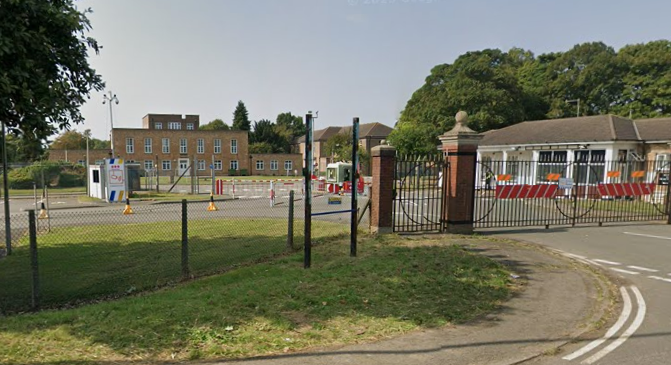An independent report has revealed a £2.1bn economic boost from the redevelopment of the former RAF Scampton.
The report produced by Focus Consultants was commissioned by Scampton Holdings Ltd and West Lindsey District Council. It outlines the potential of the former RAF Scampton site to become a nationally significant hub for employment, tourism, innovation, and community regeneration, supporting thousands of jobs and preserving the site’s historic legacy. Key projected benefits include up to 3,625 new jobs, with more than 800 roles in defence and aerospace, £40m in construction Gross Value Added (GVA), and a £65m boost to local tourism, driven by more than 300,000 annual visitors and plans for a new air show celebrating Scampton’s aviation heritage. The report also projects a £25m investment in research, development and skills, supporting STEM education, apprenticeships, and long-term career opportunities for local people, and a £417m uplift in community wellbeing, land value and heritage preservation. Sally Grindrod-Smith, director of planning, regeneration and communities at West Lindsey District Council, said: “This independent report confirms what we have long believed, the former RAF Scampton is a site of huge untapped potential. “Through careful planning and investment with our development partner Scampton Holdings LTD, we can deliver high-quality jobs, national economic value, and a revitalised community asset that honours the site’s iconic past. “Scampton is also a critical element of an evolving, inter-connected high-growth regional economy and as such represents a once-in-a-generation opportunity—not just for West Lindsey, but for the East Midlands and national economy.”LATEST ARTICLES
Crash barrier contractor gears up for growth following management buy-out
Protek Fencing, a leading UK contractor specialising in motorway crash barriers, has completed a multi-million-pound management buy-out (MBO) with backing from Mercia Debt.
The MBO sees Managing Director Kristoffer Sharp and Commercial Manager Matthew Pickering take control of the business, facilitating the retirement of former Contracts Director Scott Clayton.
Based in Leeds, Protek has secured a significant funding package to support its growth. Half of the funding is provided by Mercia’s SME Loans fund, with the remaining amount coming from NPIF II – Mercia Debt Finance, which is part of the Northern Powerhouse Investment Fund II (NPIF II).
This investment will support the company’s expansion, including new plant and technology, and enable it to bid for larger contracts, particularly in the area of bridge parapets.
Established in 1987, Protek focuses on road restraint systems such as safety barriers, pedestrian guardrails, and security fencing. It has completed major projects like the Armley Gyratory upgrade in Leeds and a barrier replacement project on the A69 between Carlisle and Newcastle.
The company currently employs 11 staff and aims to broaden its service offering by adding specialist parapet works and expanding its presence across the UK.
Mercia’s funding package supports Protek’s efforts to increase turnover and grow its business by investing in technology and infrastructure. The company plans to scale up its operations, aiming to secure larger frameworks and contracts across the UK.
Kris Sharp, Managing Director, said: “Nearly four decades of quality and reliability have given Protek its reputation. Our goal is to increase turnover by adding specialist parapet works and expanding our footprint across the UK.” Gary Whitaker, Investment Director at Mercia, added: “Kris and Matt have the sector knowledge and drive to take Protek to the next level. Our tailored package not only funds the buy‑out but equips the business for immediate growth.”LCF Law makes key appointment and promotions
£48m secured for major improvements along Penistone Rail Line
Councillor Moses Crook, deputy leader and cabinet member for transport and housing, said: “We are thrilled that Kirklees Council has been awarded this vital funding to improve our rail network – and now the green light to begin making progress towards delivery.
“This is more than just investment in our railways – it’s an investment in our communities and will make a real difference to residents living along the Penistone Line route and across Kirklees.
“The improvements will bring more reliable trains with better journey times between Huddersfield and Sheffield and will help to boost our local economy, support growth in Kirklees and improve connectively across the north. “The Penistone Line is a crucial transport link, and it’s all part of our plans to make the Kirklees economy stronger, more regionally integrated and greener for future generations. These upgrades will open greater opportunities in education, employment, skills and health and wellbeing for residents across Kirklees.”First phase of Florence Square development on Leeds’ South Bank approved
The first phase of the Florence Square development in Leeds has received approval. This phase includes two office buildings that will provide over 220,000 sq ft of office space. The development is led by Southside Leeds Ltd, a joint venture between Shelborn Asset Management and Stamford Property Holdings.
The two buildings, Block A and Block B, will offer seven and nine storeys of office space, respectively, above ground-floor amenities including retail units, cafés, and restaurants. A new public square and a landscaped pocket park will form the heart of the development.
Florence Square is set to become part of the city’s South Bank regeneration, with potential for up to 500,000 sq ft of additional commercial, residential, and leisure space in future phases. The development will be positioned between the River Aire and the Leeds & Liverpool Canal.
The design focuses on sustainability, with ambitious goals in energy efficiency and health-conscious workspaces. The scheme aims to provide a flexible environment that can adapt to changing work patterns, aligning with the future of urban development.
Heron Foods outlines expansion plans with new stores and job creation
Frozen food retailer Heron Foods is targeting expansion despite recent workforce reductions. The Hull-based company, which operates over 340 locations, revealed a drop in its workforce to 5,519 employees in the last financial year, following the loss of around 250 jobs.
However, the company has committed to opening 10 new stores in its current financial year, aiming to create new job opportunities. The expansion will primarily focus on the North and Midlands regions, though specific locations are yet to be confirmed.
Heron Foods is also considering relocating some of its existing stores to larger sites in order to improve the customer experience and increase foot traffic. The company is actively exploring new properties through both internal and external channels.
Alongside this, Heron is investing in refurbishments of its current stores to enhance sales and customer engagement. The company remains focused on cost control, a vital aspect for a discount food retailer, while continuing to invest in its infrastructure to streamline retail operations and distribution.
The company is also reviewing plans for potential expansions within its distribution network, although these are still in the early stages.
South Yorkshire startups can access new support for idea validation
A new initiative in South Yorkshire is offering tech startups essential support to validate their ideas. The TECH SY project, funded by the South Yorkshire Mayoral Combined Authority, aims to accelerate the region’s tech sector by providing grants or consultancy services to early-stage businesses.
The Idea Validation Grant (IVG) provides up to £2,500 in financial support or £5,000 worth of consultancy services. The programme is designed to help startups assess the feasibility and potential of their business ideas before committing to large-scale product development. Funding can be used for activities such as market research or prototyping.
Alternatively, businesses can access mentorship from experienced entrepreneurs through Trove Ventures, which also offers a network of regional industry experts. This support is part of a wider strategy to strengthen the local tech ecosystem and provide founders with the resources needed to turn ideas into successful businesses.
The TECH SY programme has been gathering data on the region’s startup scene since its launch last year. It works closely with local industry leaders to identify effective ways of fostering innovation and scaling up the digital economy in South Yorkshire.
Startups interested in the Idea Validation Grant must be based in South Yorkshire and have an innovative project with high growth potential. Applicants should clearly outline how the grant or consultancy will help them validate their business idea or identify their target customers.
Tadweld highlights skills shortage in UK welding industry
The UK welding industry is grappling with a severe skills shortage, a problem that has become increasingly critical in recent years. With a rapidly aging workforce and insufficient new talent coming into the sector, the industry’s future is at risk. Tadweld, a North Yorkshire-based welding firm, has called attention to the growing gap in skilled welders, which is being exacerbated by the mass retirement of experienced professionals.
In 2023, the number of welding trainees in the UK had fallen dramatically, leaving a significant shortfall in the workforce. While training programmes have been put in place, such as those launched by the Engineering Construction Industry Training Board (ECITB), they have not been sufficient to close the gap. The shortage is particularly acute in critical sectors like nuclear, oil, and gas, which require thousands of welders to meet future demand.
The situation is projected to worsen in the coming years, with nearly half of the UK’s welding workforce expected to retire by 2027. This will create a need for more than 35,000 new skilled workers, but current training systems are not designed to meet this demand. In addition, the reliance on international recruitment for over 70% of new welders, combined with the increasing need for automation, is putting further pressure on the industry.
Tadweld, as part of the broader effort to address these challenges, is working to promote welding as a viable career path, with a focus on attracting younger talent. The company is calling for greater investment in apprenticeships and STEM education to ensure a steady flow of skilled workers into the sector. In addition, Tadweld believes that changing the industry’s image will play a key role in reversing the decline and ensuring long-term sustainability.
With a growing demand for skilled welders, particularly in the North Yorkshire region, it is clear that coordinated action from industry leaders, educational institutions, and government is essential to tackle the skills shortage head-on and secure the future of the welding industry in the UK.












